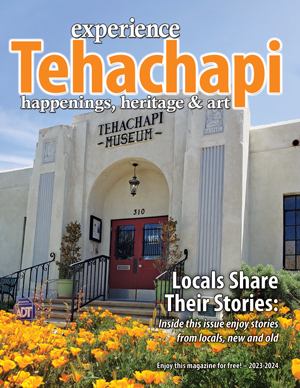Recycling program at Tehachapi Community Church, UCC
May 11, 2019
On Sunday, April 28, the Environmental Ministry Team at the Tehachapi Community Church, UCC, 100 East E St. in Downtown Tehachapi, gave a detailed presentation on recycling.
Team members described how waste is now a global problem. In 2013, a study in the U.S. showed we generated about 254 million tons of trash, and recycled and composted about 87 million tons of this material ... equivalent to a 34.3 percent recycling rate. According to National Geographic, “Only 9 percent of recyclable materials actually are recycled. The vast majority—about 79 percent—is accumulating in landfills or sloughing off [redirected] in the natural environment as litter (7/19/2017)”. A whopping 91 percent of plastic isn’t recycled at all.
Carol Rush explained that coastal cities have the worst problem when collection sites or landfills are hit with rainstorms. Waste, especially plastics are washed into the ocean. Since plastic does not change composition, but just breaks down into small pieces. Marine life and seabirds then mistake it for food. Many marine animals and birds are dying as a result.
Team members gave information on our own church recycling program, and other local recycling locations. Information about how recycling in California has progressed since the passage of Assembly Bill AB 939 in 1989, and a subsequent bill: AB 241 in 2011 was presented. AB241 sets a goal for California of not less than 75 percent of solid waste generated to be reduced, recycled or composed by 2020.
Our Kern County Waste Management Department has instituted programs within Bakersfield to achieve that goal mainly by partnering or contracting with private waste haulers. In Tehachapi, Waste Management now takes many materials to be recycled, including cardboard, glass, metal and some plastic besides CRV plastic at the former Benz facility, 416 N. Dennison Rd. Golden Hills has contracted with a hauler that offers a recycle bin. Benz is still in business, and will also accept materials to be recycled.
Other ideas on how to reduce using non-recyclable items such as metal or bamboo straws, using reusable water bottles, washable or biodegradable plastic bags and paper bags instead of plastic for food storage, were presented. More information can be obtained by contacting Chris or Carol Rush, Env. Ministry Team Members at (661) 822-4742.



